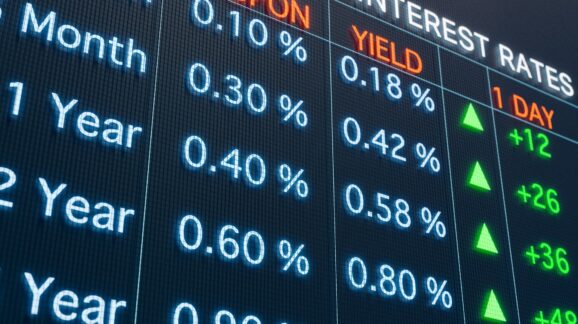Fed Chair Powell hearing: more to do on inflation

Photo Credit: Getty
At his semiannual congressional testimony this week, Federal Reserve Chairman Powell hinted that the Fed likely is not done raising interest rates. This comes as a relief for folks concerned about inflation after the Fed declined to increase interest rates at its most recent Federal Open Market Committee (FOMC) meeting.
Powell noted, correctly, that some of the decline in the most recent inflation numbers is from non-monetary factors that the Fed does not control. Housing and energy prices have come down recently for supply and demand reasons. Other price relief has come as supply chains continue to build back from COVID-related strains. These have nothing to do with the money supply, which is both the root cause of inflation and Powell’s main concern.
Last week I argued that the Fed should have raised interest rates instead of holding them steady. Powell’s remarks make it likelier that the Fed will raise interest rates at the next FOMC meeting on July 25-26.
I’ve noted before that inflation indicators like CPI and PCE are flawed because they do not distinguish between supply-and-demand price changes, and price changes due to monetary inflation. Core inflation measures are somewhat more accurate, because they remove volatile food and energy prices that move around for supply-and-demand reasons that have nothing to do with monetary inflation.
The most recent CPI reading bears Powell out. The headline number reads 4 percent, but the core CPI reads 5 percent. That means monetary inflation is slightly worse than it appears on the surface. The Fed still has work to do.
Inflation is still better than it was at its 9 percent peak, but the Fed needs to do more to get monetary growth back in line with real economic activity. That means raising interest rates and continuing to let its bond portfolio draw down as its assets mature.
While the Fed has already done most of the big things to get inflation back in line, there is still more to do. Powell typically focuses on inflation expectations; if markets expect inflation to continue, then to some extent it can be a self-fulfilling prophecy. Long-term contracts, supply chain purchasing decisions, and other decisions will factor in expected inflation, which means those prices will automatically rise over time.
Powell is aware of inflation’s monetary roots, and it was reassuring to hear him address those, as well as his usual emphasis on inflation expectations. Powell is facing political pressure to keep interest rates lower than they should be, and there is always the risk of another trillion-dollar spending bill that the Fed would have to help finance. If Powell can stand up to outside pressure, and if Congress and President Biden can restrain themselves, there is reason to believe the Fed will continue to do the right thing, and that the market will begin to believe they mean what they say about fighting inflation.